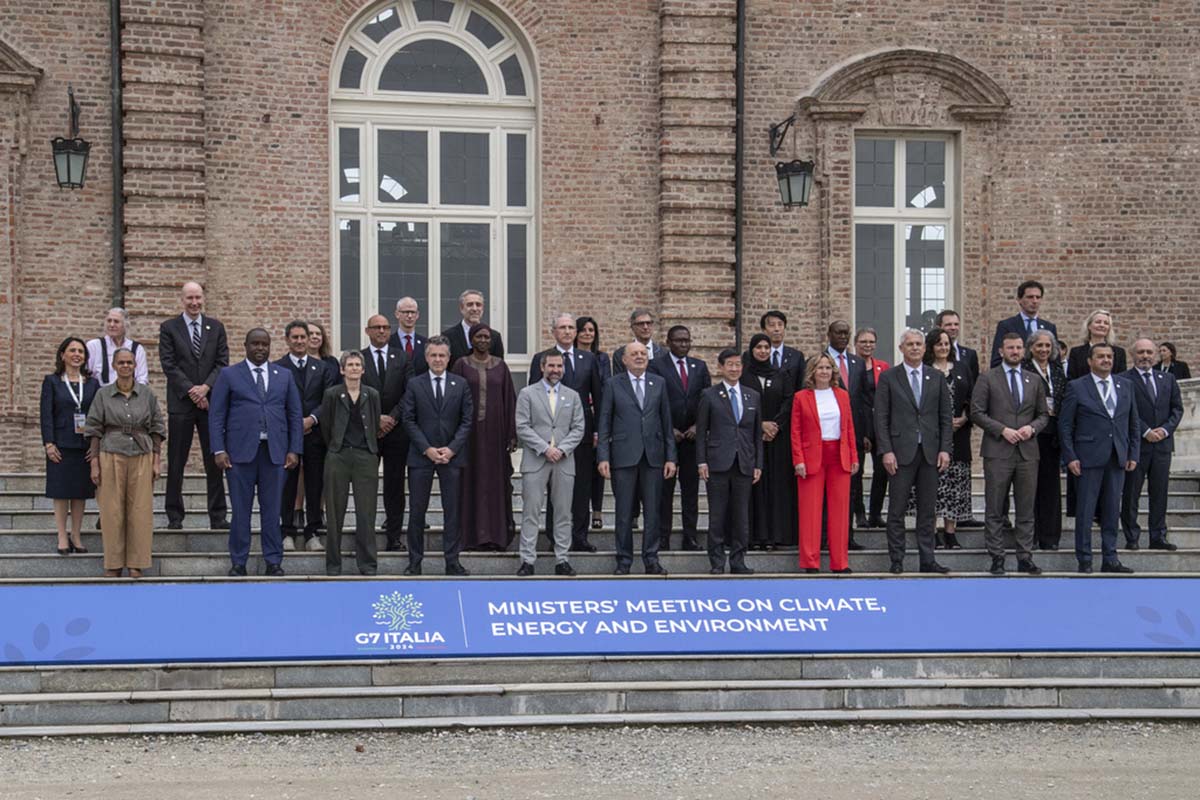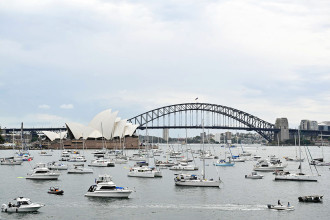
TURIN, ITALY: G7 ministers are convening for discussions on environmental and climate change in Turin on Monday, with experts advocating for the highly industrialised nations to leverage their political influence, wealth, and technology to cease the use of fossil fuels.
The Group of Seven's meeting in the northern Italian city marks the first significant political gathering since the global commitment at the UN's COP28 climate summit in December to transition away from coal, oil, and gas.
This comes as a new report from a global climate institute indicates that the G7 is significantly falling short of its targets.
On Sunday, hundreds of protesters took to the streets in Turin, with some burning images of the G7 leaders, accusing them of failing future generations in relation to the climate crisis.
Rome, which currently holds the G7 rotating presidency, has expressed its desire for Turin to serve as a "strategic link" between last year's Conference of Parties in Dubai and COP29, scheduled for November in Azerbaijan.
The objective is "to make the course set out by COP28 practical, real, concrete," stated Gilberto Pichetto Fratin, the Italian Minister for Environment and Energy Security, ahead of the meeting.
Italy, a climate change hotspot susceptible to wildfires, drought, and glacier retreat, is prioritising "biodiversity, ecosystems, warming seas" on the agenda, he added.
Delegations from Dubai and Azerbaijan are present in Turin, along with representatives from Brazil, which is hosting the G20 this year.
- 'Innovative' -
Environment ministers from the G7, which comprises Canada, France, Germany, Japan, the UK, and the US, will convene for four working sessions over two days at the 17th-century Palace of Venaria.
Environmentalists are keen to understand how they plan to fulfil pledges such as the agreement in Dubai to double energy efficiency rates and triple renewable capacity by 2030.
The discussions will emphasise the need to diversify sources of critical materials essential to renewable energy systems, as well as the reuse of minerals, in an effort to prevent overreliance on China, which leads in green technologies.
Italy has stated that rare earths and renewables will be part of the discussions with African delegations invited to Turin.
Canada, France, Germany, and the UK are advocating for a global treaty to reduce plastic pollution and are expected to utilise the G7 to rally a hesitant US and Japan.
Climate observers are hopeful for an increase in support for less developed countries in decarbonising their industrial production, with experts providing advice on particularly challenging sectors, such as cement and steel.
There may be commitments to allocate more funds for adaptation to climate change, and Italy has stated that the G7 will discuss "innovative" financing models amid calls for more accessible finance for vulnerable countries.
- 'Closely Watched' -
Collectively, the G7 constitutes approximately 38% of the global economy and was accountable for 21% of total greenhouse gas emissions in 2021, as reported by the Climate Analytics policy institute.
Not a single member of the group is on course to meet the existing emission reduction targets for 2030, managing instead to reduce them by "at best around half of what is needed," according to a report by the institute last week.
The US on Thursday finalised comprehensive plans to curb emissions from fossil fuel plants, setting a deadline of 2032 for existing coal plants to reduce their carbon dioxide output by 90%.
France is anticipated to advocate for the G7 to phase out coal by 2030, but Japan is hesitant to commit to a date.
Germany -- Europe's largest emitter of greenhouse gases -- is resistant to transitioning away from gas, as is Italy.
Italy's far-right Prime Minister, Giorgia Meloni, has repeatedly pledged to transform Italy into a gas hub for Europe, seeking new suppliers in the Mediterranean and Africa and expanding gas infrastructure.
Luca Bergamaschi, the founder of the Italian climate think tank ECCO, has questioned Italy's assertion that gas is essential for its energy security, and has criticised its interest in emerging technologies such as nuclear fusion as misguided.
Decisions made by the G7 "have a significant impact on the markets and on the ideas and expectations of investors," and Italy's leadership in Turin "will be closely observed," he stated.
By RSS/AFP




-1767252619.jpg)

